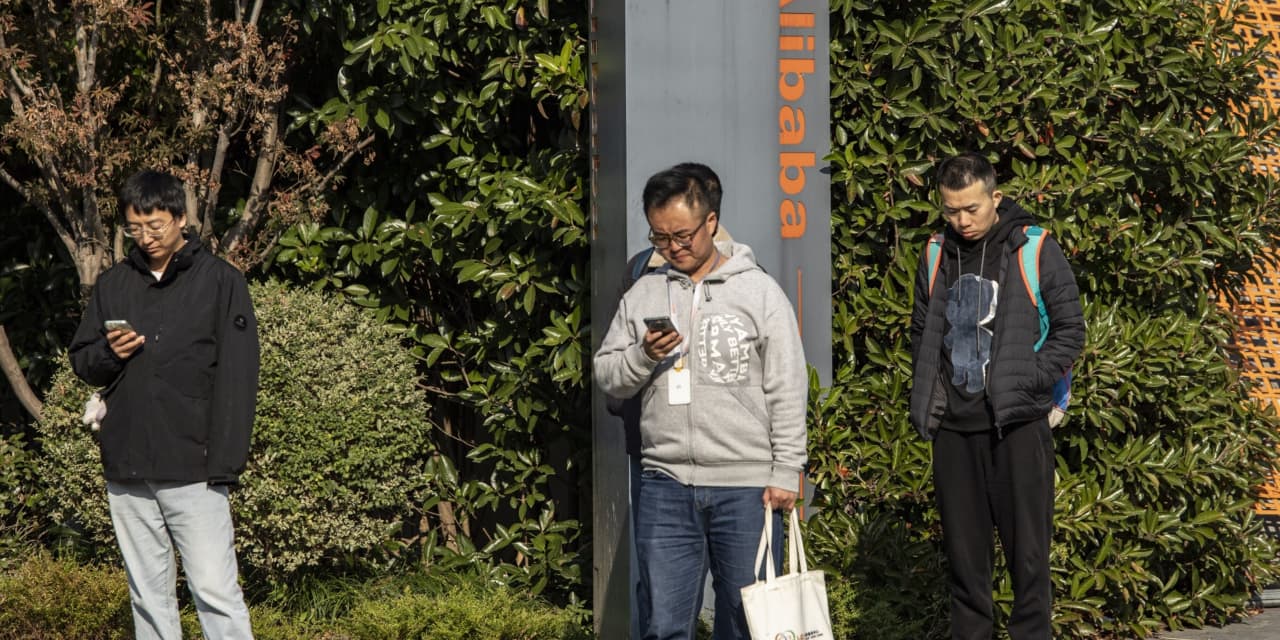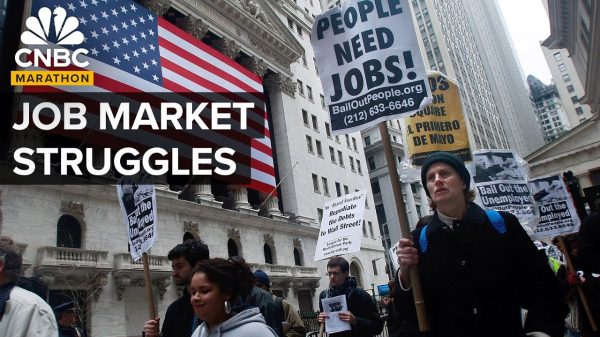If President Joe Biden and Chinese leader Xi Jinping’s efforts this week to keep the two countries’ rivalry from spiraling into a geopolitical conflict eased investors’ concerns,
Alibaba
Group’s decision Thursday to cancel its much-awaited cloud spinoff only renewed them.
Chinese stocks have been beset by what Brendan Ahern, chief investment officer at KraneShares, describes as a “buyer’s strike,” with widely held Internet stocks taking the brunt of the hit. The
KraneShares CSI China Internet
ETF (KWEB) fell 5% on Thursday.
The reasons range from an economy that has failed to pick up steam following the easing of strict Covid restrictions, a government crackdown on the property and technology sectors, and geopolitical concerns as the U.S. and China find a new balance between partner, competitor and adversary.
Bargain-hunters have been burned. That includes those who began tiptoeing back into Alibaba (ticker: BABA) amid a view that the government’s crackdown on internet platform companies in recent years was winding down. New management and plans for a restructuring that looked to spin off Alibaba’s cloud and other businesses drew in investors further.
But on Thursday Alibaba scrapped that spinoff, citing the impact of U.S. export restrictions on advanced chips as the Biden administration has tried to counter China. Its stock ended down 9%
The U.S. tightened export controls on advanced semiconductors last month, further complicating the picture for not just Alibaba but also other large Chinese cloud providers.
The restrictions put into doubt their access to reliable long-term supply of advanced GPUs used for various applications by the likes of Alibaba,
Baidu
(BIDU) and Tencent (700. HongKong) and Huawei, says Paul Triolo, associate partner for China and Technology Policy Lead at consultancy Albright Stonebridge Group.
For example,
Nvidia
(NVDA) has had to degrade the performance of its advanced GPUs to meet U.S. export control requirements and Huawei’s capacity is uncertain given its reliance on Chinese chip maker SMIC, which is under export restrictions by the U.S., Triolo says.
While some companies like Baidu and Tencent have pivoted to Huawei as a supplier, it’s unclear how Huawei and SMIC are still able to design and produce advanced hardware given the current set of restrictions on semiconductor manufacturing tools, Triolo says. Restrictions could be tightened further as lawmakers raise questions about those latest advancements.
These restrictions will constrain the ability of Internet cloud companies like Alibaba to provide AI-related services, curtailing the growth prospects for their cloud businesses and making them less attractive for a spinoff, says Ramiz Chelat, a portfolio manager on Vontobel Asset Management’s global equity and emerging markets strategies.
Chelat still owns Alibaba, noting that investors are being paid to wait while the new management tries to fix the company’s core e-commerce business and stabilize market share. The company’s strong free cash flow generation is supporting share buybacks and a dividend and margins outside of its e-commerce business are already improving, including in logistics.
Others though see more trouble, especially as Alibaba’s second-quarter earnings showed still weak discretionary spending by Chinese consumers and a continued move to trade down. That is contributing to market-share losses for Alibaba as consumers gravitated toward e-commerce companies like
Pinduoduo
(PDD).
“Canceling the spinoff tells you the ship isn’t turning around,” says Rajiv Jain, chief investment officer for
GQG Partners,
of Alibaba.
Trouble at Alibaba, one of the most widely held Chinese stocks, doesn’t bode well for boosting confidence among investors or Chinese consumers and businesses. Chelat, for example, is already underweight China versus his benchmark and trimming stocks that have held up well as he sees China in for a multiyear slog to stabilize its property market.
“We need a broader macro recovery to get more positive,” he says. Plus, the opportunity set for investors is getting narrower as recently fast growing areas like electric vehicles and solar are now seeing oversupply, which is denting margins.
Alibaba’s results didn’t bolster confidence about the underlying economy and instead just raised a flag about the geopolitical tensions that could further impinge growth, even as Xi tries to play down tensions with the U.S. after his first visit here in six years.
Write to Reshma Kapadia at [email protected]
Read the full article here













